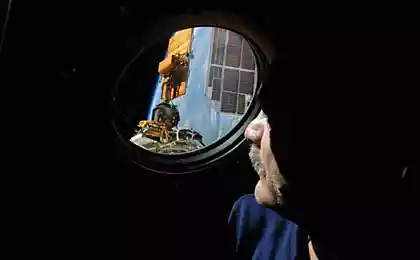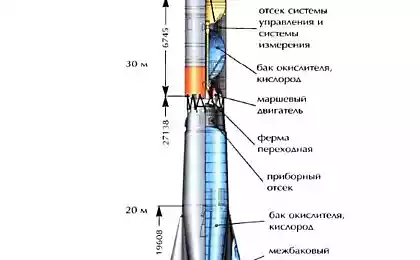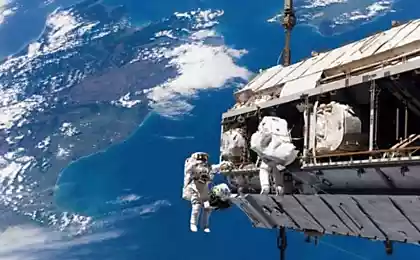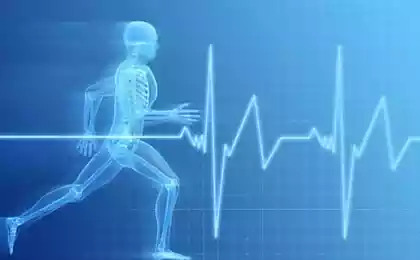742
10 main dangers faced by human in space
If you ever have the opportunity to be face to face with the universe, to go into space and enjoy the views of infinity, take precautions - in space lurks a lot of threats, and here are some of the problems that can happen.
1. Lack vozduha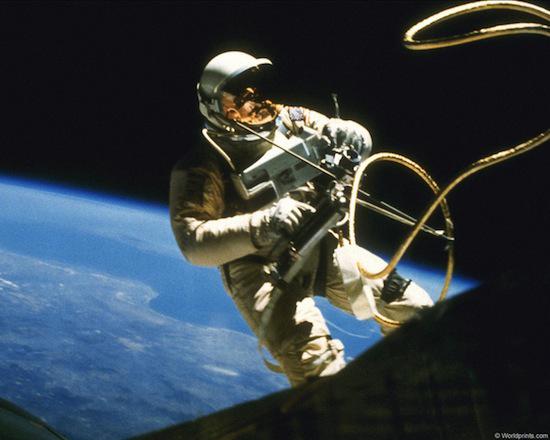
On the space station there is always a risk of damage to shell any object (such as an asteroid), in which case the pressure difference "suck" of the crew into space.
Inside, the atmosphere is always maintained and preserved condition for the "residents" of the orbit close to the earth, but if there was a leak, air will rush into it, simultaneously capturing equipment and the astronauts themselves. In such a situation a little chance to survive even if escape death from the debris generated during the accident remains not very attractive prospect for a while drifting in a vacuum until stocks run out of oxygen.
2. Strong opuhanie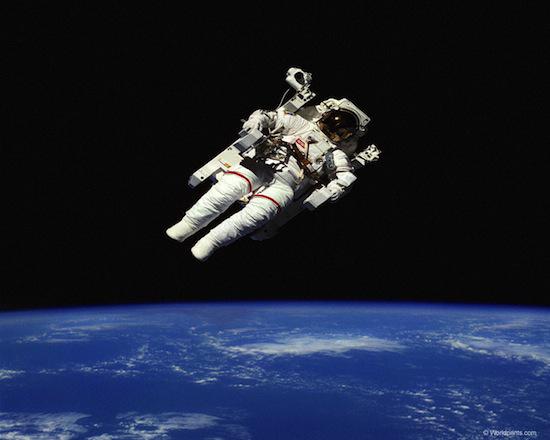
This unpleasant phenomenon may be due to the fact that the water is about 70% of the human body, without the influence of atmospheric pressure tends to turn into a vapor - a result of the body that "swells", sometimes increasing in volume almost doubled.
Water vapor can not escape to the outside, damaging the skin, but it certainly delivers "swollen" person serious problems.
Sunny 3. svet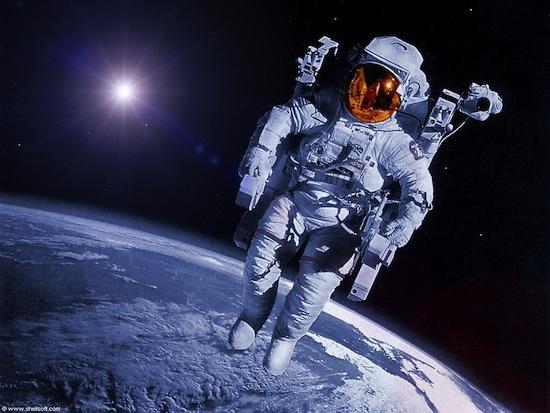
Many familiar sensation of sunburn, "burn" on the beach - a common occurrence. But now, imagine what would happen if the beach is located a little closer to the luminary: a person is in an open space, without the ozone layer and the atmosphere that are "filtered" harmful ultraviolet radiation, is subjected to a monstrous risk.
The consequences for the body can be very sad: the skin is exposed to strong sunlight exposure, which will make her instantly, "char", and throwing the naked eye on our star can remain blind - the retina will be burned. And even the survivors dramatically increase the risk of skin cancer.
4. Gipoksiya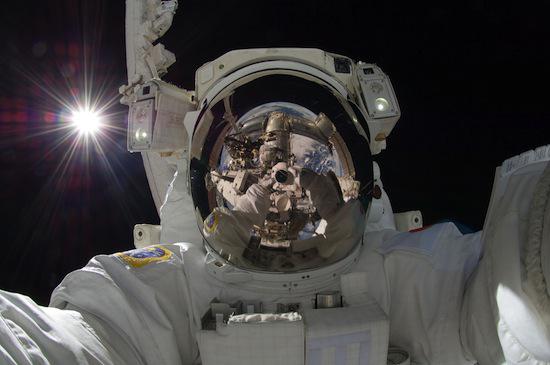
In a vacuum, a person dies from suffocation, but not because there is no air: in the absence of earth-pressure oxygen in the blood is destroyed and the cardiovascular system begins to work "idle" - the vital organs and muscles suffer from a lack of oxygen, and the new portions air longer absorbed by cells. The phenomenon is known as hypoxia: the resultant of her choking gives the skin a bluish tint, and ten seconds a person's life ends.
5. The sharp drop in temperature tela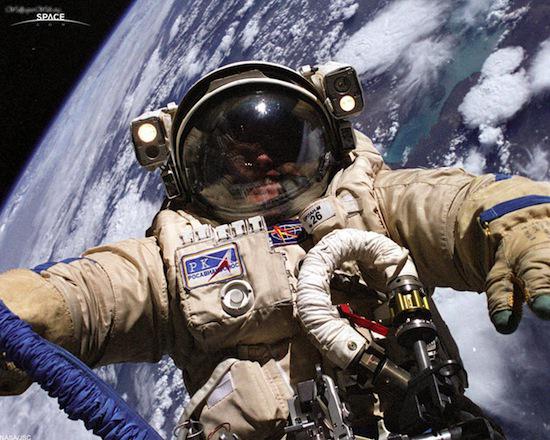
We know that sweating helps regulate body temperature regime, because the evaporation of the liquid is absorbed by the heat, and thus the body cools itself. The saturated air evaporation is less intense, and the moisture in the open space is not at all, so the process is gaining momentum: as a result of the eyes, mouth and respiratory tract rapidly give large amounts of energy, and as a result, comes hypothermia.
6. Decompression bolezn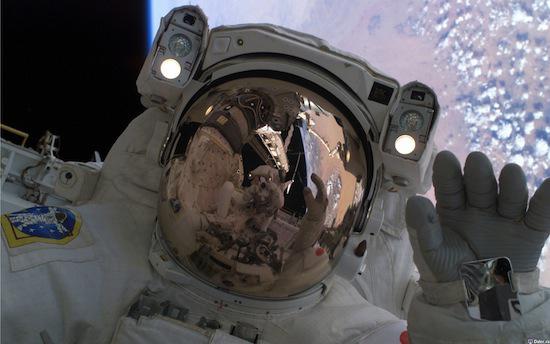
The splitting of oxygen in the blood - is not the only consequence of staying in a vacuum: in the absence of atmospheric pressure gas molecules in the body (for example, nitrogen compounds) begin to "bubble", clogging blood vessels and destroying the cell walls. This gives rise to unbearable pain in the joints, but the main thing - blood clots in the circulatory system can lead to a heart attack, seizures or cardiac arrest.
7. Lowering blood davleniya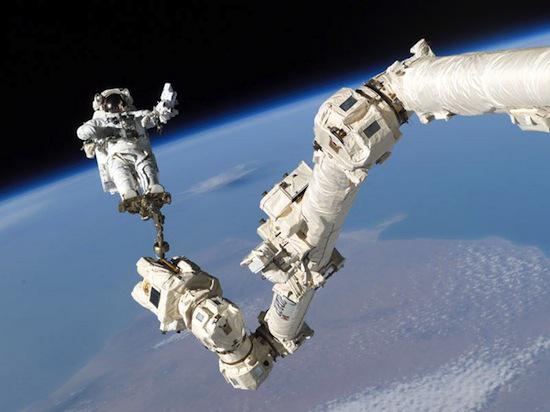
With all the dangers of being in the open space, there is also this: the inevitable (as it follows from the above paragraphs) deformation of the body will create a huge additional strain on the muscles of the heart which will try to get rid of the blood of the enlarged blood vessels, maintaining stable blood pressure, but sooner or later the pressure will come to naught, and the subsequent death. To understand the principle, imagine how hard it would be to drink a cocktail through a straw, if its diameter will increase many times.
8. Sudden razgermetizatsiya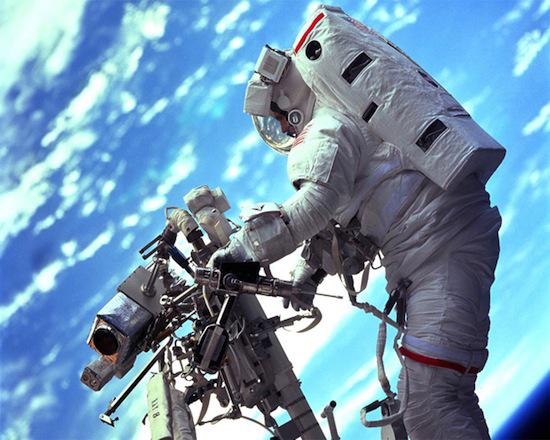
If the hole in the hull of the spacecraft led to the depressurization, and all living things like a giant vacuum cleaner pulls out into a vacuum, no need to rush to gain full lungs of air, to live for a few precious seconds longer. The result will be strictly the opposite: the difference between the internal and external pressures break the light like a balloon - when you suddenly happen to fly through the hole in the shell of a space ship, try to exhale properly before this.
9. Boiling krov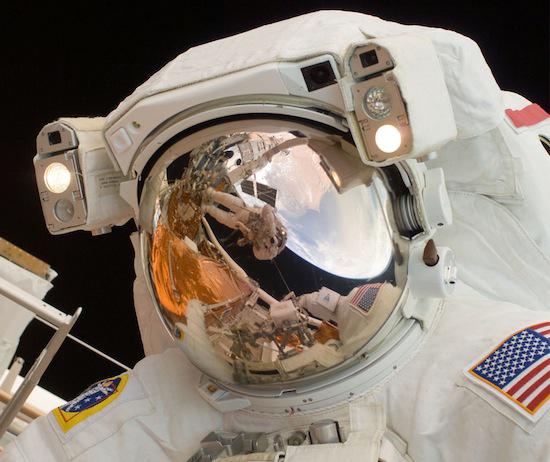
Why mountain water boils at a temperature below 100 ° C? The fact that the lower the ambient pressure, the easier it is to make the molecules move, and less heat required to convert the liquid into a dense vapor. "Walk" in a vacuum will cause you to "boil" as here operates exactly the same principle: the pressure in the vacuum is almost zero, and the body temperature enough to blood vessels literally boil.
10. Cell mutatsii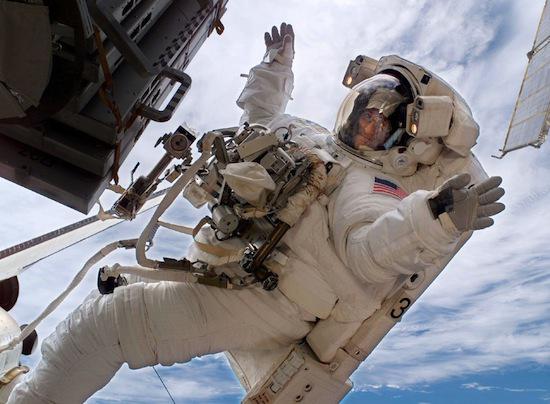
While in space, remember that with all the obvious risks, such as blast lung or hypoxia, the danger is not so pronounced, but no less real: the body will at every moment, "flashing" subatomic particles. Invisible eye charged protons, as well as X-rays and gamma-rays act at the cellular level and cause a variation in the structure of the DNA. The result is unlikely to succeed to acquire over-capacity - more likely delayed for years the death from radiation or cancer.
via factroom.ru
1. Lack vozduha

On the space station there is always a risk of damage to shell any object (such as an asteroid), in which case the pressure difference "suck" of the crew into space.
Inside, the atmosphere is always maintained and preserved condition for the "residents" of the orbit close to the earth, but if there was a leak, air will rush into it, simultaneously capturing equipment and the astronauts themselves. In such a situation a little chance to survive even if escape death from the debris generated during the accident remains not very attractive prospect for a while drifting in a vacuum until stocks run out of oxygen.
2. Strong opuhanie

This unpleasant phenomenon may be due to the fact that the water is about 70% of the human body, without the influence of atmospheric pressure tends to turn into a vapor - a result of the body that "swells", sometimes increasing in volume almost doubled.
Water vapor can not escape to the outside, damaging the skin, but it certainly delivers "swollen" person serious problems.
Sunny 3. svet

Many familiar sensation of sunburn, "burn" on the beach - a common occurrence. But now, imagine what would happen if the beach is located a little closer to the luminary: a person is in an open space, without the ozone layer and the atmosphere that are "filtered" harmful ultraviolet radiation, is subjected to a monstrous risk.
The consequences for the body can be very sad: the skin is exposed to strong sunlight exposure, which will make her instantly, "char", and throwing the naked eye on our star can remain blind - the retina will be burned. And even the survivors dramatically increase the risk of skin cancer.
4. Gipoksiya

In a vacuum, a person dies from suffocation, but not because there is no air: in the absence of earth-pressure oxygen in the blood is destroyed and the cardiovascular system begins to work "idle" - the vital organs and muscles suffer from a lack of oxygen, and the new portions air longer absorbed by cells. The phenomenon is known as hypoxia: the resultant of her choking gives the skin a bluish tint, and ten seconds a person's life ends.
5. The sharp drop in temperature tela

We know that sweating helps regulate body temperature regime, because the evaporation of the liquid is absorbed by the heat, and thus the body cools itself. The saturated air evaporation is less intense, and the moisture in the open space is not at all, so the process is gaining momentum: as a result of the eyes, mouth and respiratory tract rapidly give large amounts of energy, and as a result, comes hypothermia.
6. Decompression bolezn

The splitting of oxygen in the blood - is not the only consequence of staying in a vacuum: in the absence of atmospheric pressure gas molecules in the body (for example, nitrogen compounds) begin to "bubble", clogging blood vessels and destroying the cell walls. This gives rise to unbearable pain in the joints, but the main thing - blood clots in the circulatory system can lead to a heart attack, seizures or cardiac arrest.
7. Lowering blood davleniya

With all the dangers of being in the open space, there is also this: the inevitable (as it follows from the above paragraphs) deformation of the body will create a huge additional strain on the muscles of the heart which will try to get rid of the blood of the enlarged blood vessels, maintaining stable blood pressure, but sooner or later the pressure will come to naught, and the subsequent death. To understand the principle, imagine how hard it would be to drink a cocktail through a straw, if its diameter will increase many times.
8. Sudden razgermetizatsiya

If the hole in the hull of the spacecraft led to the depressurization, and all living things like a giant vacuum cleaner pulls out into a vacuum, no need to rush to gain full lungs of air, to live for a few precious seconds longer. The result will be strictly the opposite: the difference between the internal and external pressures break the light like a balloon - when you suddenly happen to fly through the hole in the shell of a space ship, try to exhale properly before this.
9. Boiling krov

Why mountain water boils at a temperature below 100 ° C? The fact that the lower the ambient pressure, the easier it is to make the molecules move, and less heat required to convert the liquid into a dense vapor. "Walk" in a vacuum will cause you to "boil" as here operates exactly the same principle: the pressure in the vacuum is almost zero, and the body temperature enough to blood vessels literally boil.
10. Cell mutatsii

While in space, remember that with all the obvious risks, such as blast lung or hypoxia, the danger is not so pronounced, but no less real: the body will at every moment, "flashing" subatomic particles. Invisible eye charged protons, as well as X-rays and gamma-rays act at the cellular level and cause a variation in the structure of the DNA. The result is unlikely to succeed to acquire over-capacity - more likely delayed for years the death from radiation or cancer.
via factroom.ru
An interesting experiment to simulate a mental disorder
There is a fish that can live on land for two months without harm to your health




